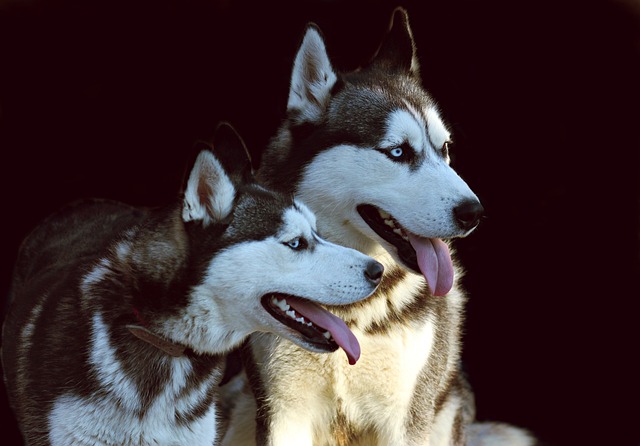
Can you stop a dog from jumping
Watching my neighbor’s golden retriever, Max, launch himself at every guest who walked through their door—paws on shoulders, tail wagging like a metronome
I was at a Portland park last weekend when a golden retriever named Bailey spotted a butterfly, took off in a sprint, and completely tuned out her owner’s “Come!” calls. “She’s so good at home, but out here? Nothing works,” her owner sighed, watching Bailey disappear into the trees. If your dog ignores your calls outdoors, you’re not alone—and it’s rarely about defiance. Dogs don’t come when called outside because their brains are wired to prioritize exploration over human voices, especially when surrounded by the chaos of new smells, sounds, and sights. Let’s unpack the real reasons behind those ignored calls and why understanding them is the first step to fixing it.
Dogs experience the world through their senses, and outdoors, their brains go into “survival mode”—focused on detecting threats, food sources, or social opportunities. A squirrel rustling leaves, a breeze carrying another dog’s scent, or a child laughing 50 feet away triggers their ancient “explore and investigate” instincts, which evolved to keep them alive in the wild. A trainer in Seattle calls it “sensory overload”: your voice becomes just one sound in a symphony of distractions, and unless you’ve taught them your call is the most important, they’ll tune it out. Worse, if coming when called ever ended with scolding (for running off in the first place), they’ll learn to associate your voice with stress, making them avoid you more. My neighbor’s beagle, Charlie, once got scolded after coming back from a chase—now he hides behind bushes when he hears “Come!” because he expects trouble, not treats.
Another big reason: they haven’t learned that “coming back” beats whatever’s distracting them. If the reward for returning is a pat on the head while the squirrel disappears, their brain says, “Not worth it.” Dogs need high-value motivation—think freeze-dried liver, their favorite toy, or 30 seconds of tug-of-war—to choose you over that intriguing smell. Breeds with strong hunting instincts (terriers, hounds) need extra work because their “chase drive” is hardwired, but even lap dogs struggle outdoors without practice. My cousin’s Yorkie, Lola, ignores calls at the park because she’s too busy sniffing flower beds—she’s never learned that leaving the flowers means getting a cheese treat better than any scent.

Timing matters too. If you only call your dog when it’s time to leave the park (fun ends) or when they’re in trouble (you’re upset), they’ll learn your voice signals “good things stopping.” A vet in Denver explains it as “predictive learning”: dogs remember patterns, so if “Come!” always means “walk over” or “scolding,” they’ll avoid it like the plague. This is why positive reinforcement is non-negotiable—every time they come, even slowly, reward them with something amazing. Bailey’s owner started carrying freeze-dried salmon; after two weeks of rewarding every return, Bailey now glances back at the first “Come!” because she knows the treat is worth the butterfly chase.
In apartments, practice recall in hallways first to build focus before hitting parks—this teaches them to listen even with new echoes or neighbor noises. When visiting busy parks, keep them on a leash until they’re reliable; this respects other dogs and owners who might not want unexpected interactions. Always carry poop bags (Portland fines $125+ for forgetting) and keep their rabies vaccine current—most parks require proof, and a dog who listens is safer around kids and pets. Never scold a dog who finally comes; that just teaches them to delay longer next time.
Bailey’s owner now spends 10 minutes daily in their backyard, calling her over for salmon treats, before moving to quiet trails. Last week, she came running mid-squirrel chase when called—proof that understanding why they ignore you is the first step to making them choose you.

Watching my neighbor’s golden retriever, Max, launch himself at every guest who walked through their door—paws on shoulders, tail wagging like a metronome

I sat with Maria in her Austin apartment last spring as her rescue German Shepherd, Max, paced nervously near his bed, hackles raised.

How long does it take to potty train a 4 month old puppy? Most vets and trainers agree you’re looking at roughly 4 to 6 weeks of consistent work, but don’t stress if your little one takes a bit longer.

I was helping my friend Lily with her rescue pit bull, Rocky, last winter when he lunged suddenly, nipping her hand hard enough to leave a bruise.

I sat across from Jamie in a Seattle coffee shop last month as she scrolled through her phone—3 missed texts from her apartment manager, all about her border collie

I jolted awake at 2 AM in my Chicago apartment, the sound of my neighbor’s terrier, Milo, barking nonstop through the walls. “Not again,” I groaned